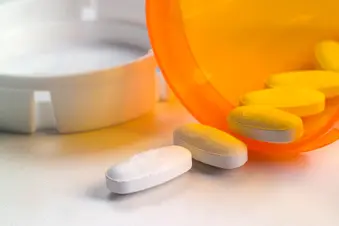
If you were recently diagnosed with hypoparathyroidism, you’ll want to learn more about each treatment option for the condition. You can aim to live a healthy life with a good treatment plan. With your care regimen, your doctor will aim to ease your symptoms and bring your phosphorus and calcium levels back to normal.
While hypoparathyroidism is a lifelong condition, many people are able to control their symptoms with the right treatment.
What Are the Treatment Options for Hypoparathyroidism?
There are a few different options when it comes to treatment for this condition. Your doctor will help you find the best options for you. You might have to try a few different ones before you find treatment that works well.
Your hypoparathyroidism care plan might include:
Calcium supplements. Your doctor might have you take calcium supplements in a tablet, a liquid, or a chewable form. This can help boost the calcium levels in your blood and help with your hypoparathyroidism.
Vitamin D. This vitamin can help your body absorb calcium and get rid of phosphorus. For hyperparathyroidism, doctors may give you calcitriol (Rocaltrol). This is a prescription medication. It contains active vitamin D, which is different from a regular vitamin D supplement that you’d buy at the store.
Thiazide diuretics. Sometimes your calcium levels will still be low even if you take calcium supplements or use other treatments for hypoparathyroidism. In addition, your urine might have a high amount of calcium. This means that your body flushes out too much calcium. If either of these happen, your doctor might adjust your dose of vitamin D and calcium or put you on thiazide diuretics. These will help your body keep the calcium out of your urine and resorb it back into your blood. This can help reduce the risks of calcium deposits in your kidney or kidney stones
Magnesium supplements. If you have low magnesium levels with hypoparathyroidism, talk to your doctor about a magnesium supplement. This kind of treatment can help give your body the correct amount of magnesium.
Daily injections of parathyroid hormone. Natpara is a hormone that the FDA approved for use if you have hypoparathyroidism. The treatment can help correct low blood calcium. You’ll take this injection once a day.
Intravenous infusion. This treatment can help with symptom relief right away. If you get an intravenous infusion, you might need to stay at the hospital. Your doctor will give you calcium through a small tube. The tube will connect through a vein in either your arm or your hand. In the hospital, you’ll also get oral vitamin D tablets. When you go home, your doctor will have you take calcium and more vitamin D tablets as well.
A special diet. Your doctor might also suggest that you use food as medicine. Diet changes can help your hypoparathyroidism if you follow them alongside other medical treatments. Your health care team will want you to speak with a dietitian who will help you create meals that help your condition.
They’ll suggest foods that are high in calcium. This can include things like:
- Green leafy vegetables like broccoli, cabbage, and okra
- Dairy
- Foods with added calcium like some cereals or orange juice
- Soy beans
- Tofu
- Fish, like pilchards or sardines, because you eat the bones with these types
Your dietitian will also want you to eat a diet that’s low in phosphorus. You’ll want to stay away from carbonated drinks. This is because they have phosphoric acid, which is a form of phosphorus. You’ll also want to lower the amount of:
- Meat
- Hard cheeses
- Processed foods
- Whole grains
- Nuts
- Other types of fish
- Poultry
- Rice
- Oats
Are There Any Risks With Hypoparathyroidism Treatment?
As with all things, there can be a risk involved with some of the treatment options for hypoparathyroidism. Your doctor will talk with you about these risks. You’ll decide as a team how to maximize your outcome, even with possible side effects.
Risks of supplements. It’s important to only start calcium supplements with a doctor’s approval. Too much calcium can lead to uncomfortable side effects. Some people who take too much notice digestive issues like constipation.
Similarly, treatment with vitamin D and calcium supplements can also lead to a buildup of calcium in your kidneys. This can lead to issues like kidney stores, tissue damage, calcium deposits, kidney function trouble, or kidney failure.
Risks with parathyroid hormones. With parathyroid hormone injections, there’s a risk of osteosarcoma, or bone cancer. While experts found this risk in animal studies, they still have limited the amount of people who can use these medications.
You can only use this hormone as a treatment if other forms of therapy, like calcium supplements or vitamin D medications, haven’t worked to control your calcium levels. Before you start this treatment, your doctor will make sure you understand the risks involved.
Show Sources
Photo Credit: jcphoto / Getty Images
SOURCES:
Mayo Clinic: “Hypoparathyroidism.”
National Institutes of Health: “How is Hypoparathyroidism Treated?”
NHS: “Hypoparathyroidism.”